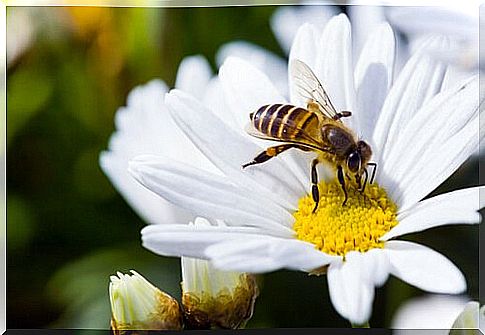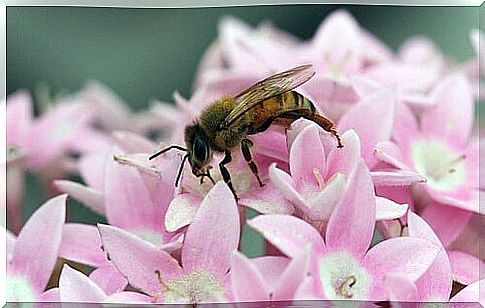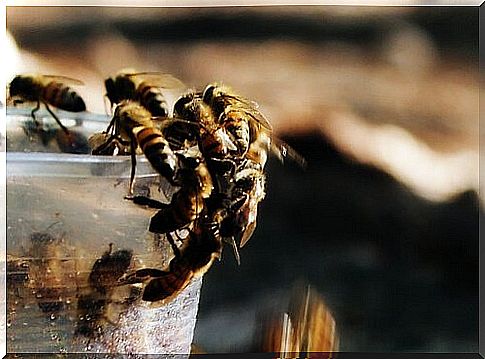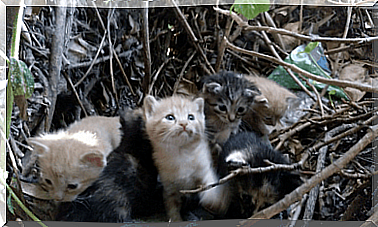Bees Are Vital For Us

Sometimes we don’t realize how important certain animal species are to our survival and even that of the planet. Even if you don’t believe it, without bees it is very unlikely that life will go on.
This little insect – which we sometimes fear – plays a fundamental role in ecology. Learn more about the flying pollinators in our article.
The task of the bees
There are thousands of animal species of various sizes and habitats in the world. However, bees allow life to go on.
This is literally true, because this little, yellow-black-ringed animal flies tirelessly from flower to flower, pollinating flowers and plants. In this way, it ensures that other species can find food as well.
Worldwide biodiversity depends on bees through a process called ‘symbiotic dependence’.
This relationship begins when the animal uses nectar and pollen to feed and produce honey while carrying seeds from one plant to the next.
The process of pollination between plants inevitably needs an agent that transports the genetic information necessary to ensure the survival of the species.
Not only do bees help wild plants grow, they also pollinate almost half of the fruits and vegetables we eat.
Without bees, agriculture would come to a standstill and that could cost the lives of millions of people and animals.
Nature and the food chain are very wise: pollination creates plants. They are eaten by herbivores, which in turn are consumed by carnivores.
If the first part of this calculation is lost, then the same thing happens with the rest.

Why are the bees disappearing?
The population of this insect has decreased by 25% in the last 30 years. This happened for various reasons, all of which unfortunately arose through the fault of the people.
On the one hand, it is due to industrial agriculture. It uses pesticides and herbicides that lead to the loss of habitats and native flora and fauna.
On the other hand, environmental pollution is also to blame. Bees cannot live in an environment contaminated with smog and heavy metals.
Also, changes in the climate, increasing rain or drought and extreme temperatures are deadly for the cute little animals. These factors affect the quality and amount of the nectar they collect.
As if that wasn’t enough, some countries have started using robotic bees for pollination. It seems that these are more efficient than the real ones. As if 800 kilometers traveled in a bee’s life were not a sign of efficiency!
Ultimately, there are also those people who are so afraid of a bee sting that they immediately pull out the insecticide or a magazine as soon as a bee flies in their way. But bees only sting when they feel attacked!
So if a bee is a few meters away, that doesn’t mean that it wants to plant its stinger under your skin.
Doing so would cause her own death. The animals only use this defense tactic in extreme cases when their stick is in danger.

How can we prevent the bees from disappearing?
Now that you know that life without bees would be almost impossible, it’s time to take action. Of course you can be the change you want to see around you, you just have to take the first step. How can you help them
- Create a garden full of brightly colored flowers at home that will attract them. Don’t be afraid, they won’t sting you.
- Buy local seasonal produce to avoid industrial farming full of insecticides. In this way, you are also doing something good for your health at the same time.
- Buy honey and products like royal jelly, cosmetics with bee products, pollen and bee resin from organic manufacturers.
- Don’t kill by bees around you. Just let them go their way, so you don’t disturb them in their work either.
When the biodiversity of plants and pollinators disappears, our human civilization (as we know it) will have little time left.
The number of living things could decrease dramatically and those who survive may no longer eat natural foods, but rather foods made in a factory or laboratory.
That is why bees are vital for us and the planet.









